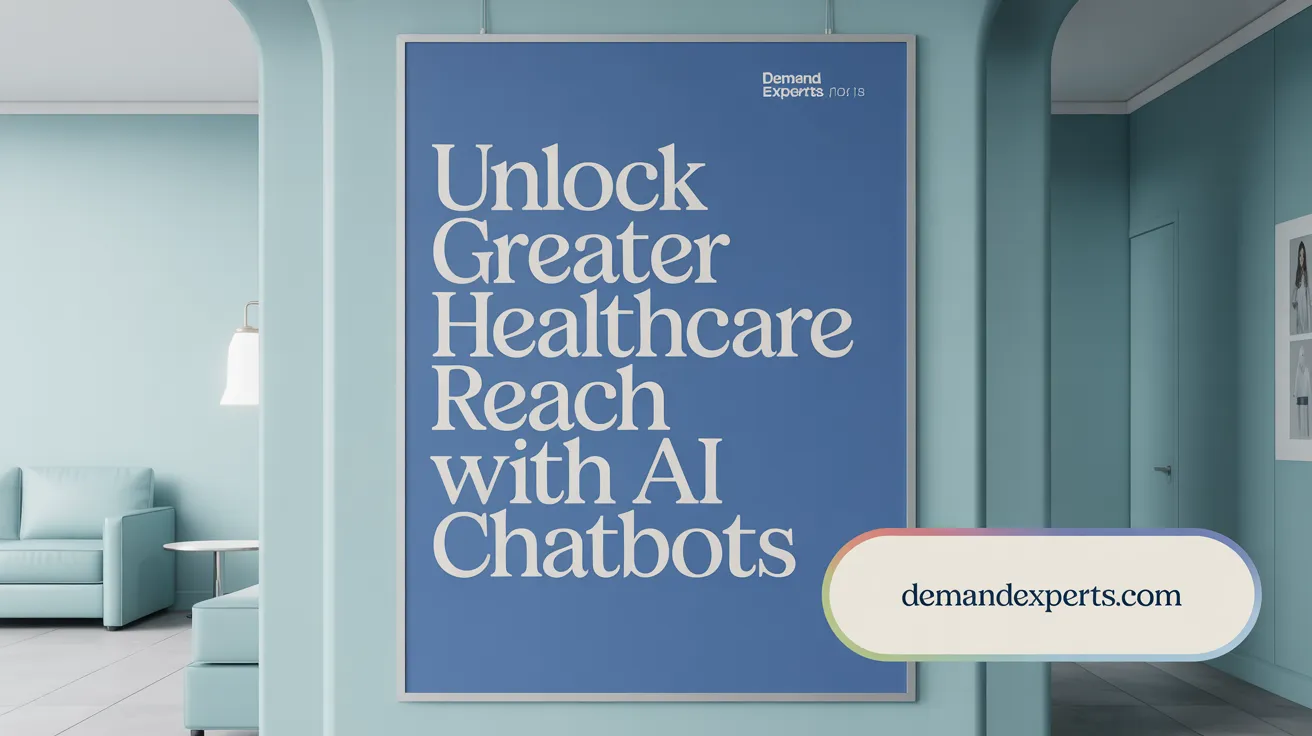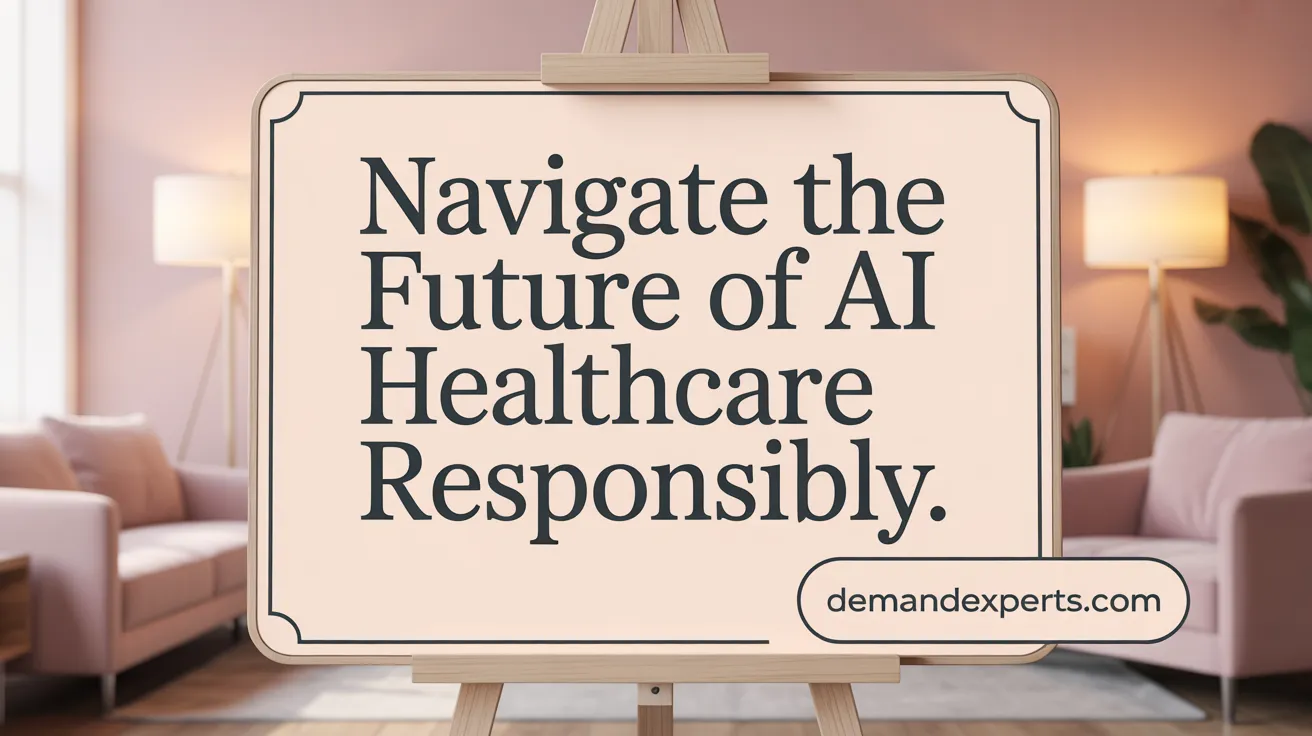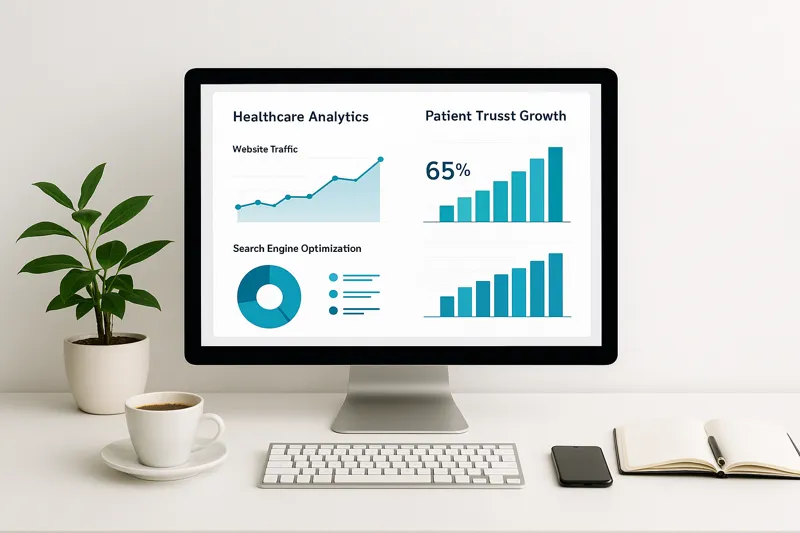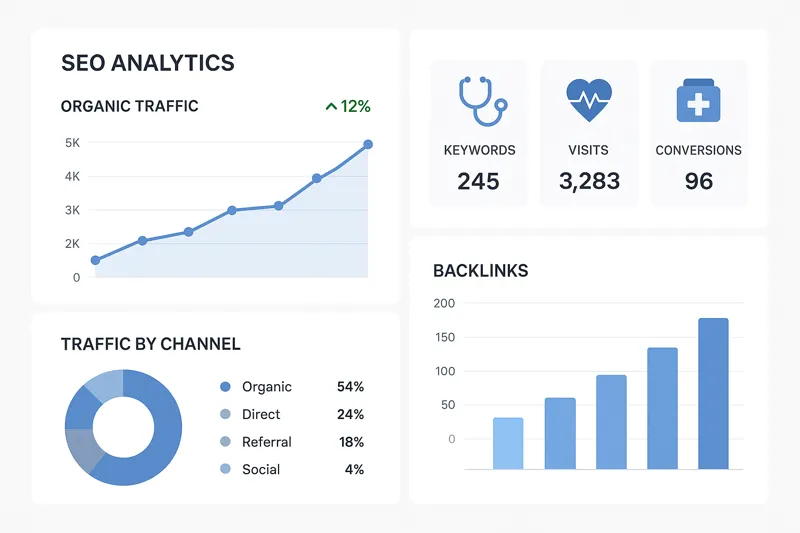The Emerging Role of AI Live Chat in Healthcare
As healthcare systems worldwide face increasing operational pressures, patient expectations for seamless, accessible, and personalized care have never been higher. AI live chat solutions, particularly AI-powered chatbots, are rapidly emerging as key tools to enhance patient satisfaction and retention. These sophisticated conversational agents provide 24/7 availability, streamline administrative workflows, support clinical decision-making, and foster patient engagement through personalized interactions. This article explores how AI live chat is revolutionizing patient experience, improving adherence to care plans, reducing clinician burden, and ultimately driving better health outcomes and loyalty.
Enhancing Patient Engagement Through AI Chatbots
How do AI chatbots improve patient engagement and adherence?
AI chatbots significantly enhance patient engagement by offering instant, personalized communication. They perform critical functions such as appointment scheduling, triage, symptom assessment, and therapeutic support. This ensures patients receive timely and relevant information, contributing to engagement rates exceeding 90% among enrolled users. Moreover, AI chatbots help clarify complex medical instructions and provide real-time reminders, which bolsters patient adherence to treatment plans, with rates reaching up to 97%, notably benefiting those with chronic illnesses (chronic disease management with AI chatbots).
Functions performed by chatbots in healthcare
- Scheduling and reminders: Patients can book or reschedule appointments effortlessly (appointment scheduling chatbots).
- Symptom checking and triage: Chatbots analyze symptoms and direct patients to appropriate care (symptom analysis via AI chatbots.
- Medication adherence support: They offer timely reminders and guidance for medication management (medication reminders).
- Therapeutic and educational support: Provide explanations about treatments and health management (health education via chatbots, therapeutic support from chatbots.
- Administrative assistance: Handle insurance queries, billing, and FAQs to reduce staff workload (automating administrative tasks.
Impact on patient adherence and satisfaction
By improving clarity around medical instructions and maintaining continuous patient communication, AI chatbots increase patients’ trust and understanding of their health plans (improving patient satisfaction with AI chatbots. This leads to higher adherence rates and greater patient satisfaction. The virtual assistant model also frees healthcare staff to attend to complex needs, enhancing overall care quality (support clinicians with AI chatbots.
24/7 availability and accessibility benefits
AI chatbots operate round-the-clock, allowing patients to access healthcare information and support anytime (24/7 health information access, 24/7 patient care chatbots). This continuous availability caters especially to those with urgent questions outside traditional clinic hours (instant patient support). The scalable nature of chatbots enables the management of high patient volumes without added clinician burden, ensuring consistent patient engagement and convenience (managing high patient volumes with chatbots.
Operational Efficiency and Clinician Support Through AI Live Chat
How does AI live chat reduce clinicians’ administrative burden?
AI chatbots significantly alleviate clinicians’ administrative workload by automating various routine and time-consuming tasks such as appointment scheduling, prescription refills, billing inquiries, and patient data collection. By handling these operations, chatbots free clinical staff to devote more time and attention to direct patient care (AI chatbots boost patient engagement and reduce clinician workload.
Reduction in clinician workload
AI scribes play a pivotal role by transcribing and summarizing patient-clinician conversations in real time, drastically cutting down the documentation burden. A study showed that AI scribes saved physicians thousands of hours annually, allowing clinicians to focus more on patients during consultations without being distracted by note-taking (AI scribes reduce documentation time and improve patient interactions).
Automation of administrative and routine tasks
Beyond documentation, AI-powered chatbots process common patient queries, manage reminders, automate medication adherence checks, and streamline appointment management. This widespread automation enhances operational efficiency across healthcare settings (how AI chatbots advance healthcare for patients and providers.
Role of AI scribes in improving patient interactions
By reducing the need for manual note-taking, AI scribes improve the quality of clinician-patient interactions. Physicians report spending less time on computers and more time engaging empathetically with patients, which correlates with increased clinician satisfaction and improved patient experience (AI scribes enhance patient interactions and clinician satisfaction).
Clinician oversight and safety measures
Despite automation, healthcare organizations implement human oversight to ensure chatbot-generated advice and responses are accurate and safe. Clinicians review AI interactions, verify automated communications, and provide options for patients to escalate inquiries to human providers. This hybrid approach maintains safety, privacy, and trust (human oversight in AI chatbot interactions, AI chatbots boost patient engagement and reduce clinician workload.
Overall, AI live chat and scribes enhance healthcare delivery by reducing administrative burdens, improving patient communication, and ensuring clinical oversight remains integral to care.
Building Trust and Satisfaction by Addressing Privacy and Accuracy Concerns

What are the strategies to maintain patient trust when using AI chatbots?
Patient trust in AI chatbots is crucial and hinges on several careful strategies. First, healthcare providers openly inform patients when they are interacting with a virtual assistant rather than a human. This transparency helps manage expectations and reduces feelings of uncertainty.
Human oversight plays a vital role in ensuring accuracy. Clinicians review chatbot interactions and content before they are delivered to patients, minimizing risks of errors or misleading information. This layer of supervision reassures patients that AI tools assist but do not replace professional judgment.
Privacy safeguards are strictly maintained with adherence to regulations like HIPAA. Data encryption and secure handling of sensitive health information are standard to prevent breaches and misuse, which addresses patient concerns about confidentiality.
Ethical considerations are integral, with systems designed to provide honest disclosure about data use and limitations of AI chatbots. Patients are offered straightforward options to escalate queries to human clinicians, creating a safety net for complex or sensitive issues. This approach fosters confidence by respecting patient autonomy and promoting responsible AI adoption.
Together, these measures build strong patient satisfaction by combining technology with human empathy, guaranteeing that AI chatbots complement, rather than compromise, quality healthcare delivery.
Personalizing Patient Experience With AI-Driven Communication
How does AI personalize communication to improve patient satisfaction?
AI enhances patient communication by customizing interactions based on the individual's medical history, preferences, and behavioral patterns. Chatbots utilize integration with electronic health records (EHRs) to retrieve relevant data, allowing responses and recommendations to be highly targeted and contextually appropriate. This seamless access to personal data facilitates timely and meaningful engagement, such as personalized appointment reminders, medication adherence prompts, and health advice tailored to specific conditions.
Customization of chatbot interactions
Advanced AI-driven chatbots adapt their communication style and content dynamically, responding to each patient's unique needs. Personalization includes recognizing prior interactions, adjusting language complexity based on health literacy, and offering specialized guidance that aligns with the user’s health status.
Integration with patient data and electronic health records
Integration with EHRs supports the chatbot’s ability to provide accurate and personalized information by leveraging up-to-date clinical data. This connectivity improves care coordination and enhances patient confidence by ensuring consistency and relevance across communication platforms, a process discussed in AI transforming healthcare delivery.
Multilingual and culturally tailored communication
AI chatbots support multiple languages and cultural contexts, making healthcare information accessible to diverse populations. This inclusivity addresses language barriers and fosters equity by delivering culturally respectful and comprehensible interactions, a benefit highlighted in multilingual healthcare chatbots and digital divide and equitable access to chatbots.
Empathetic and natural language interactions
Through advances in natural language processing and sentiment analysis, AI chatbots simulate empathetic, human-like conversations. They provide a nonjudgmental, supportive environment that encourages patients to share sensitive information comfortably. This empathetic approach improves user satisfaction and trust, essential for effective patient engagement and adherence to care plans, as explained in detail in AI-based health care chatbots and conversational AI in healthcare.
Cost Savings and Increased Patient Retention Through AI Chatbots
How do AI chatbots contribute to cost savings and patient retention?
AI chatbots streamline healthcare operations by automating routine, high-volume tasks such as appointment scheduling, symptom triage, medication reminders, and administrative support. This automation significantly reduces the workload on clinical staff, resulting in lower operational costs without compromising patient care (Healthcare IT News on AI chatbots boosting patient engagement and reducing clinician workload; Coherent Solutions on how AI chatbots advance healthcare for patients and providers.
For example, OSF HealthCare's implementation of the virtual assistant Clare led to $2.4 million in savings within the first year. This was achieved by increasing revenue through better patient engagement and diverting call volume from traditional contact centers (OSF HealthCare's Clare virtual assistant case study). Such reductions in administrative burden allow healthcare staff to focus on higher-value clinical duties, thereby improving overall efficiency (AI contact center solutions for quality patient experience).
Beyond cost reductions, AI chatbots enhance patient satisfaction by providing 24/7 accessibility, timely responses, and personalized health guidance. This convenience fosters higher patient adherence to care plans and boosts engagement, leading to retention rates as high as 97% in some cases (ProviderTech on improving patient satisfaction with conversational AI; Healthcare IT News on AI chatbots boosting patient retention. Satisfied patients are more likely to continue utilizing services and refer others, amplifying the value gained by healthcare systems (Clarion Technologies on AI healthcare chatbot benefits).
Return on investment is evident as chatbots reduce no-shows, optimize scheduling, and support behavioral health interventions that improve outcomes (NCBI on AI-based chatbots for health behavior change; Clinical Leader on AI revolutionizing patient recruitment and retention). The scalability of AI-powered chatbots enables healthcare providers to manage large patient populations efficiently, driving sustainable savings while maintaining quality care (Healthcare IT News on managing high patient volumes with chatbots.
In summary, AI chatbots contribute to substantial cost savings and improved patient retention by automating tasks, enhancing patient experience, and supporting adherence — making them a valuable asset for modern healthcare systems (PMC on roles and benefits of healthcare chatbots; JLL on AI revolutionizing the patient experience).
Expanding Access and Scalability With AI Live Chat Solutions

In what ways do AI chatbots expand healthcare access and scalability?
AI-powered chatbots provide crucial 24/7 availability of chatbots, ensuring patients can receive immediate support around the clock. This continuous operation effectively manages high volumes of patient interactions without increasing healthcare staff workloads, making them invaluable during peak demand periods.
These virtual assistants are especially beneficial for serving diverse and underserved populations. Their multilingual capabilities and cultural tailoring allow them to break down language barriers and resonate with various cultural backgrounds, ensuring equitable access to healthcare information and services.
Moreover, AI chatbots play a significant role in remote monitoring and chronic disease management. They assist patients by tracking symptoms, issuing medication reminders, and providing behavioral health interventions. This supports patients' ongoing care needs outside traditional clinical environments, improving adherence and engagement.
By combining scalable communication capabilities with personalized, accessible care functions, AI live chat solutions vastly enhance healthcare reach and efficiency, ultimately promoting better health outcomes across broad population segments.
Integrating AI Live Chat Into the Patient Journey for Seamless Experiences
How do AI live chat systems integrate across healthcare workflows to improve patient experience?
AI live chat systems seamlessly integrate with existing healthcare workflows by connecting deeply with patient portals and electronic health records (EHRs). This integration enables personalized and context-aware support such as appointment scheduling, prescription renewals, symptom checking, and tailored health education — all accessible through a patient’s familiar digital channels.
Beyond administrative tasks, these AI assistants coordinate follow-ups and care management by automating reminders for medication adherence and upcoming visits. They assist clinicians by gathering and summarizing patient-reported outcomes prior to consultations, enhancing diagnostic accuracy and decision-making efficiency.
Additionally, AI live chat platforms extend across multiple communication channels including text messaging, voice-enabled assistants, and mobile applications. This multichannel approach ensures patients stay connected on their preferred platforms, promoting continuous engagement and reducing barriers to care as demonstrated by conversational AI in healthcare.
By unifying administrative automation, clinical support, and patient education, AI chatbots create an accessible, efficient, and compassionate patient journey throughout the healthcare experience, contributing to enhanced patient satisfaction and retention.
Future Directions and Ethical Considerations in AI Healthcare Chatbots

What are the future prospects and ethical challenges of AI chatbots in healthcare?
AI healthcare chatbots are advancing rapidly with the integration of generative AI capabilities. These enhancements enable chatbots to engage in more dynamic, adaptive conversations, better mimicking human interaction and improving patient experience. Future chatbots are expected to incorporate sophisticated natural language generation and learning from interactions to personalize care more effectively (Conversational AI in healthcare).
Ongoing research and clinical trials are crucial to validate chatbot safety, diagnostic reliability, and real-world effectiveness. This evidence-based approach ensures AI tools enhance rather than replace human judgment, particularly in complex clinical decisions (AI Chatbots in Clinical Decision-Making, Stanford Medicine study on AI and medical decisions).
Ethical considerations are paramount. Developers must address bias by training AI on diverse, representative patient data to promote equity in healthcare access and outcomes (Ethical AI in healthcare, bias in AI training data. Patient privacy and data security remain critical, requiring transparent disclosures about data use and strict adherence to confidentiality standards (Privacy and accuracy in chatbot systems, data privacy and chatbots.
Regulatory frameworks are evolving globally to keep pace with AI adoption in healthcare. These guidelines emphasize informed patient consent, human clinician oversight of AI interactions, and robust safety monitoring to prevent harm from erroneous AI recommendations (human oversight in AI chatbot interactions, AI healthcare chatbot regulation Canada, medical AI safety).
Overall, future AI chatbots hold great promise for transforming patient engagement and care delivery, provided ethical challenges are carefully managed through ongoing research, inclusivity, and responsible governance (AI in healthcare transformation, Roles of chatbots in healthcare, Revolutionizing Patient Engagement).
The Transformative Potential of AI Live Chat for Patient Satisfaction and Retention
AI live chat technologies, particularly AI-powered chatbots, are rapidly becoming indispensable tools in modern healthcare delivery. By enhancing patient engagement with personalized, accessible support and enabling clinicians to focus more on direct care, these solutions improve patient satisfaction and promote long-term retention. Addressing privacy, accuracy, and ethical considerations through human oversight and transparent communication strengthens trust and maximizes benefits. As AI capabilities advance and integration deepens, healthcare providers who strategically adopt AI live chat stand to realize significant operational efficiencies, cost savings, and improved health outcomes — revolutionizing the patient experience for the digital era.
The Emerging Role of AI Live Chat in Healthcare
As healthcare systems worldwide face increasing operational pressures, patient expectations for seamless, accessible, and personalized care have never been higher. AI live chat solutions, particularly AI-powered chatbots, are rapidly emerging as key tools to enhance patient satisfaction and retention. These sophisticated conversational agents provide 24/7 availability, streamline administrative workflows, support clinical decision-making, and foster patient engagement through personalized interactions. This article explores how AI live chat is revolutionizing patient experience, improving adherence to care plans, reducing clinician burden, and ultimately driving better health outcomes and loyalty.
Enhancing Patient Engagement Through AI Chatbots
How do AI chatbots improve patient engagement and adherence?
AI chatbots significantly enhance patient engagement by offering instant, personalized communication. They perform critical functions such as appointment scheduling, triage, symptom assessment, and therapeutic support. This ensures patients receive timely and relevant information, contributing to engagement rates exceeding 90% among enrolled users. Moreover, AI chatbots help clarify complex medical instructions and provide real-time reminders, which bolsters patient adherence to treatment plans, with rates reaching up to 97%, notably benefiting those with chronic illnesses (chronic disease management with AI chatbots).
Functions performed by chatbots in healthcare
- Scheduling and reminders: Patients can book or reschedule appointments effortlessly (appointment scheduling chatbots).
- Symptom checking and triage: Chatbots analyze symptoms and direct patients to appropriate care (symptom analysis via AI chatbots.
- Medication adherence support: They offer timely reminders and guidance for medication management (medication reminders).
- Therapeutic and educational support: Provide explanations about treatments and health management (health education via chatbots, therapeutic support from chatbots.
- Administrative assistance: Handle insurance queries, billing, and FAQs to reduce staff workload (automating administrative tasks.
Impact on patient adherence and satisfaction
By improving clarity around medical instructions and maintaining continuous patient communication, AI chatbots increase patients’ trust and understanding of their health plans (improving patient satisfaction with AI chatbots. This leads to higher adherence rates and greater patient satisfaction. The virtual assistant model also frees healthcare staff to attend to complex needs, enhancing overall care quality (support clinicians with AI chatbots.
24/7 availability and accessibility benefits
AI chatbots operate round-the-clock, allowing patients to access healthcare information and support anytime (24/7 health information access, 24/7 patient care chatbots). This continuous availability caters especially to those with urgent questions outside traditional clinic hours (instant patient support). The scalable nature of chatbots enables the management of high patient volumes without added clinician burden, ensuring consistent patient engagement and convenience (managing high patient volumes with chatbots.
Operational Efficiency and Clinician Support Through AI Live Chat
How does AI live chat reduce clinicians’ administrative burden?
AI chatbots significantly alleviate clinicians’ administrative workload by automating various routine and time-consuming tasks such as appointment scheduling, prescription refills, billing inquiries, and patient data collection. By handling these operations, chatbots free clinical staff to devote more time and attention to direct patient care (AI chatbots boost patient engagement and reduce clinician workload.
Reduction in clinician workload
AI scribes play a pivotal role by transcribing and summarizing patient-clinician conversations in real time, drastically cutting down the documentation burden. A study showed that AI scribes saved physicians thousands of hours annually, allowing clinicians to focus more on patients during consultations without being distracted by note-taking (AI scribes reduce documentation time and improve patient interactions).
Automation of administrative and routine tasks
Beyond documentation, AI-powered chatbots process common patient queries, manage reminders, automate medication adherence checks, and streamline appointment management. This widespread automation enhances operational efficiency across healthcare settings (how AI chatbots advance healthcare for patients and providers.
Role of AI scribes in improving patient interactions
By reducing the need for manual note-taking, AI scribes improve the quality of clinician-patient interactions. Physicians report spending less time on computers and more time engaging empathetically with patients, which correlates with increased clinician satisfaction and improved patient experience (AI scribes enhance patient interactions and clinician satisfaction).
Clinician oversight and safety measures
Despite automation, healthcare organizations implement human oversight to ensure chatbot-generated advice and responses are accurate and safe. Clinicians review AI interactions, verify automated communications, and provide options for patients to escalate inquiries to human providers. This hybrid approach maintains safety, privacy, and trust (human oversight in AI chatbot interactions, AI chatbots boost patient engagement and reduce clinician workload.
Overall, AI live chat and scribes enhance healthcare delivery by reducing administrative burdens, improving patient communication, and ensuring clinical oversight remains integral to care.
Building Trust and Satisfaction by Addressing Privacy and Accuracy Concerns

What are the strategies to maintain patient trust when using AI chatbots?
Patient trust in AI chatbots is crucial and hinges on several careful strategies. First, healthcare providers openly inform patients when they are interacting with a virtual assistant rather than a human. This transparency helps manage expectations and reduces feelings of uncertainty.
Human oversight plays a vital role in ensuring accuracy. Clinicians review chatbot interactions and content before they are delivered to patients, minimizing risks of errors or misleading information. This layer of supervision reassures patients that AI tools assist but do not replace professional judgment.
Privacy safeguards are strictly maintained with adherence to regulations like HIPAA. Data encryption and secure handling of sensitive health information are standard to prevent breaches and misuse, which addresses patient concerns about confidentiality.
Ethical considerations are integral, with systems designed to provide honest disclosure about data use and limitations of AI chatbots. Patients are offered straightforward options to escalate queries to human clinicians, creating a safety net for complex or sensitive issues. This approach fosters confidence by respecting patient autonomy and promoting responsible AI adoption.
Together, these measures build strong patient satisfaction by combining technology with human empathy, guaranteeing that AI chatbots complement, rather than compromise, quality healthcare delivery.
Personalizing Patient Experience With AI-Driven Communication
How does AI personalize communication to improve patient satisfaction?
AI enhances patient communication by customizing interactions based on the individual's medical history, preferences, and behavioral patterns. Chatbots utilize integration with electronic health records (EHRs) to retrieve relevant data, allowing responses and recommendations to be highly targeted and contextually appropriate. This seamless access to personal data facilitates timely and meaningful engagement, such as personalized appointment reminders, medication adherence prompts, and health advice tailored to specific conditions.
Customization of chatbot interactions
Advanced AI-driven chatbots adapt their communication style and content dynamically, responding to each patient's unique needs. Personalization includes recognizing prior interactions, adjusting language complexity based on health literacy, and offering specialized guidance that aligns with the user’s health status.
Integration with patient data and electronic health records
Integration with EHRs supports the chatbot’s ability to provide accurate and personalized information by leveraging up-to-date clinical data. This connectivity improves care coordination and enhances patient confidence by ensuring consistency and relevance across communication platforms, a process discussed in AI transforming healthcare delivery.
Multilingual and culturally tailored communication
AI chatbots support multiple languages and cultural contexts, making healthcare information accessible to diverse populations. This inclusivity addresses language barriers and fosters equity by delivering culturally respectful and comprehensible interactions, a benefit highlighted in multilingual healthcare chatbots and digital divide and equitable access to chatbots.
Empathetic and natural language interactions
Through advances in natural language processing and sentiment analysis, AI chatbots simulate empathetic, human-like conversations. They provide a nonjudgmental, supportive environment that encourages patients to share sensitive information comfortably. This empathetic approach improves user satisfaction and trust, essential for effective patient engagement and adherence to care plans, as explained in detail in AI-based health care chatbots and conversational AI in healthcare.
Cost Savings and Increased Patient Retention Through AI Chatbots
How do AI chatbots contribute to cost savings and patient retention?
AI chatbots streamline healthcare operations by automating routine, high-volume tasks such as appointment scheduling, symptom triage, medication reminders, and administrative support. This automation significantly reduces the workload on clinical staff, resulting in lower operational costs without compromising patient care (Healthcare IT News on AI chatbots boosting patient engagement and reducing clinician workload; Coherent Solutions on how AI chatbots advance healthcare for patients and providers.
For example, OSF HealthCare's implementation of the virtual assistant Clare led to $2.4 million in savings within the first year. This was achieved by increasing revenue through better patient engagement and diverting call volume from traditional contact centers (OSF HealthCare's Clare virtual assistant case study). Such reductions in administrative burden allow healthcare staff to focus on higher-value clinical duties, thereby improving overall efficiency (AI contact center solutions for quality patient experience).
Beyond cost reductions, AI chatbots enhance patient satisfaction by providing 24/7 accessibility, timely responses, and personalized health guidance. This convenience fosters higher patient adherence to care plans and boosts engagement, leading to retention rates as high as 97% in some cases (ProviderTech on improving patient satisfaction with conversational AI; Healthcare IT News on AI chatbots boosting patient retention. Satisfied patients are more likely to continue utilizing services and refer others, amplifying the value gained by healthcare systems (Clarion Technologies on AI healthcare chatbot benefits).
Return on investment is evident as chatbots reduce no-shows, optimize scheduling, and support behavioral health interventions that improve outcomes (NCBI on AI-based chatbots for health behavior change; Clinical Leader on AI revolutionizing patient recruitment and retention). The scalability of AI-powered chatbots enables healthcare providers to manage large patient populations efficiently, driving sustainable savings while maintaining quality care (Healthcare IT News on managing high patient volumes with chatbots.
In summary, AI chatbots contribute to substantial cost savings and improved patient retention by automating tasks, enhancing patient experience, and supporting adherence — making them a valuable asset for modern healthcare systems (PMC on roles and benefits of healthcare chatbots; JLL on AI revolutionizing the patient experience).
Expanding Access and Scalability With AI Live Chat Solutions

In what ways do AI chatbots expand healthcare access and scalability?
AI-powered chatbots provide crucial 24/7 availability of chatbots, ensuring patients can receive immediate support around the clock. This continuous operation effectively manages high volumes of patient interactions without increasing healthcare staff workloads, making them invaluable during peak demand periods.
These virtual assistants are especially beneficial for serving diverse and underserved populations. Their multilingual capabilities and cultural tailoring allow them to break down language barriers and resonate with various cultural backgrounds, ensuring equitable access to healthcare information and services.
Moreover, AI chatbots play a significant role in remote monitoring and chronic disease management. They assist patients by tracking symptoms, issuing medication reminders, and providing behavioral health interventions. This supports patients' ongoing care needs outside traditional clinical environments, improving adherence and engagement.
By combining scalable communication capabilities with personalized, accessible care functions, AI live chat solutions vastly enhance healthcare reach and efficiency, ultimately promoting better health outcomes across broad population segments.
Integrating AI Live Chat Into the Patient Journey for Seamless Experiences
How do AI live chat systems integrate across healthcare workflows to improve patient experience?
AI live chat systems seamlessly integrate with existing healthcare workflows by connecting deeply with patient portals and electronic health records (EHRs). This integration enables personalized and context-aware support such as appointment scheduling, prescription renewals, symptom checking, and tailored health education — all accessible through a patient’s familiar digital channels.
Beyond administrative tasks, these AI assistants coordinate follow-ups and care management by automating reminders for medication adherence and upcoming visits. They assist clinicians by gathering and summarizing patient-reported outcomes prior to consultations, enhancing diagnostic accuracy and decision-making efficiency.
Additionally, AI live chat platforms extend across multiple communication channels including text messaging, voice-enabled assistants, and mobile applications. This multichannel approach ensures patients stay connected on their preferred platforms, promoting continuous engagement and reducing barriers to care as demonstrated by conversational AI in healthcare.
By unifying administrative automation, clinical support, and patient education, AI chatbots create an accessible, efficient, and compassionate patient journey throughout the healthcare experience, contributing to enhanced patient satisfaction and retention.
Future Directions and Ethical Considerations in AI Healthcare Chatbots

What are the future prospects and ethical challenges of AI chatbots in healthcare?
AI healthcare chatbots are advancing rapidly with the integration of generative AI capabilities. These enhancements enable chatbots to engage in more dynamic, adaptive conversations, better mimicking human interaction and improving patient experience. Future chatbots are expected to incorporate sophisticated natural language generation and learning from interactions to personalize care more effectively (Conversational AI in healthcare).
Ongoing research and clinical trials are crucial to validate chatbot safety, diagnostic reliability, and real-world effectiveness. This evidence-based approach ensures AI tools enhance rather than replace human judgment, particularly in complex clinical decisions (AI Chatbots in Clinical Decision-Making, Stanford Medicine study on AI and medical decisions).
Ethical considerations are paramount. Developers must address bias by training AI on diverse, representative patient data to promote equity in healthcare access and outcomes (Ethical AI in healthcare, bias in AI training data. Patient privacy and data security remain critical, requiring transparent disclosures about data use and strict adherence to confidentiality standards (Privacy and accuracy in chatbot systems, data privacy and chatbots.
Regulatory frameworks are evolving globally to keep pace with AI adoption in healthcare. These guidelines emphasize informed patient consent, human clinician oversight of AI interactions, and robust safety monitoring to prevent harm from erroneous AI recommendations (human oversight in AI chatbot interactions, AI healthcare chatbot regulation Canada, medical AI safety).
Overall, future AI chatbots hold great promise for transforming patient engagement and care delivery, provided ethical challenges are carefully managed through ongoing research, inclusivity, and responsible governance (AI in healthcare transformation, Roles of chatbots in healthcare, Revolutionizing Patient Engagement).
The Transformative Potential of AI Live Chat for Patient Satisfaction and Retention
AI live chat technologies, particularly AI-powered chatbots, are rapidly becoming indispensable tools in modern healthcare delivery. By enhancing patient engagement with personalized, accessible support and enabling clinicians to focus more on direct care, these solutions improve patient satisfaction and promote long-term retention. Addressing privacy, accuracy, and ethical considerations through human oversight and transparent communication strengthens trust and maximizes benefits. As AI capabilities advance and integration deepens, healthcare providers who strategically adopt AI live chat stand to realize significant operational efficiencies, cost savings, and improved health outcomes — revolutionizing the patient experience for the digital era.






